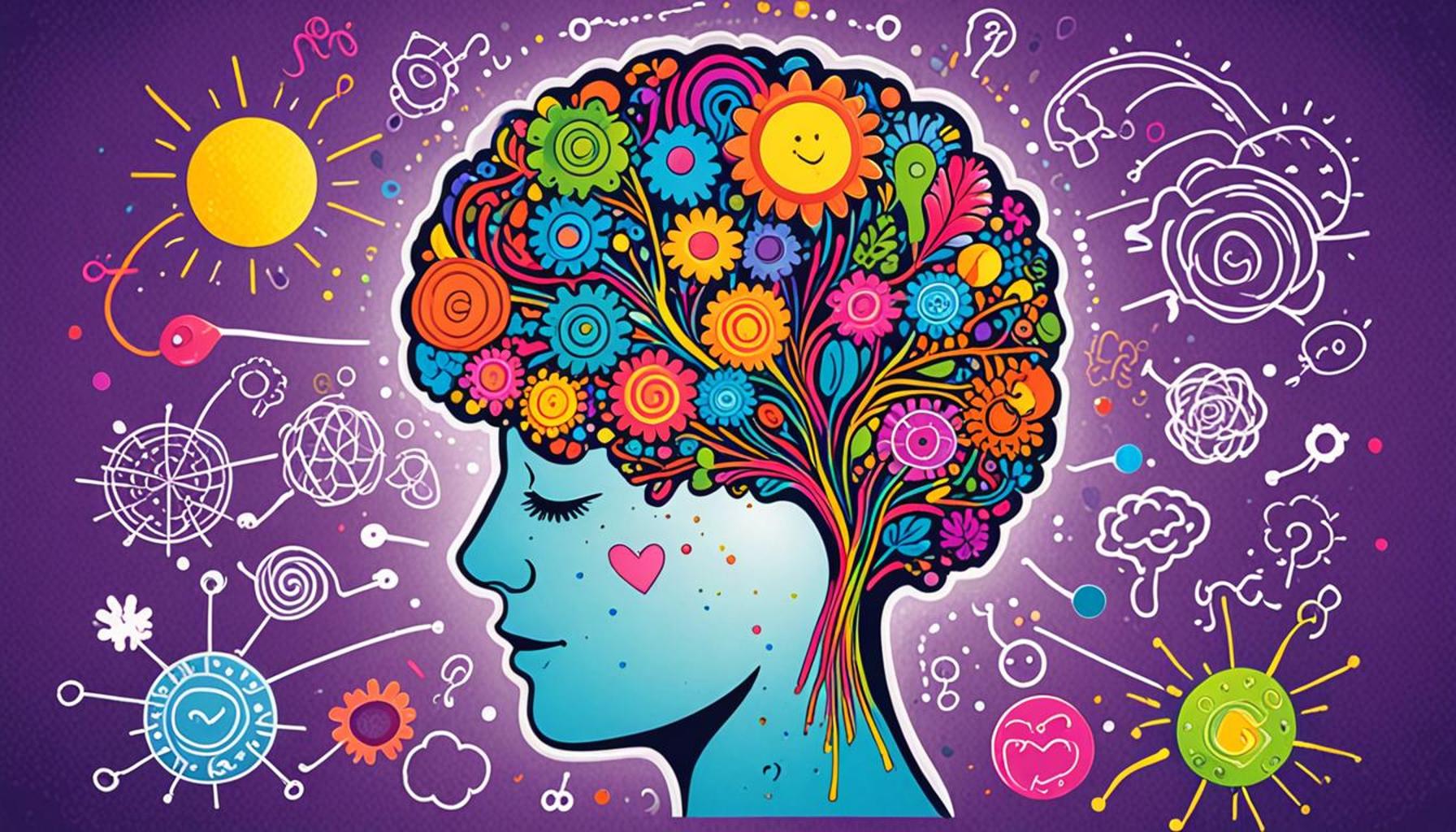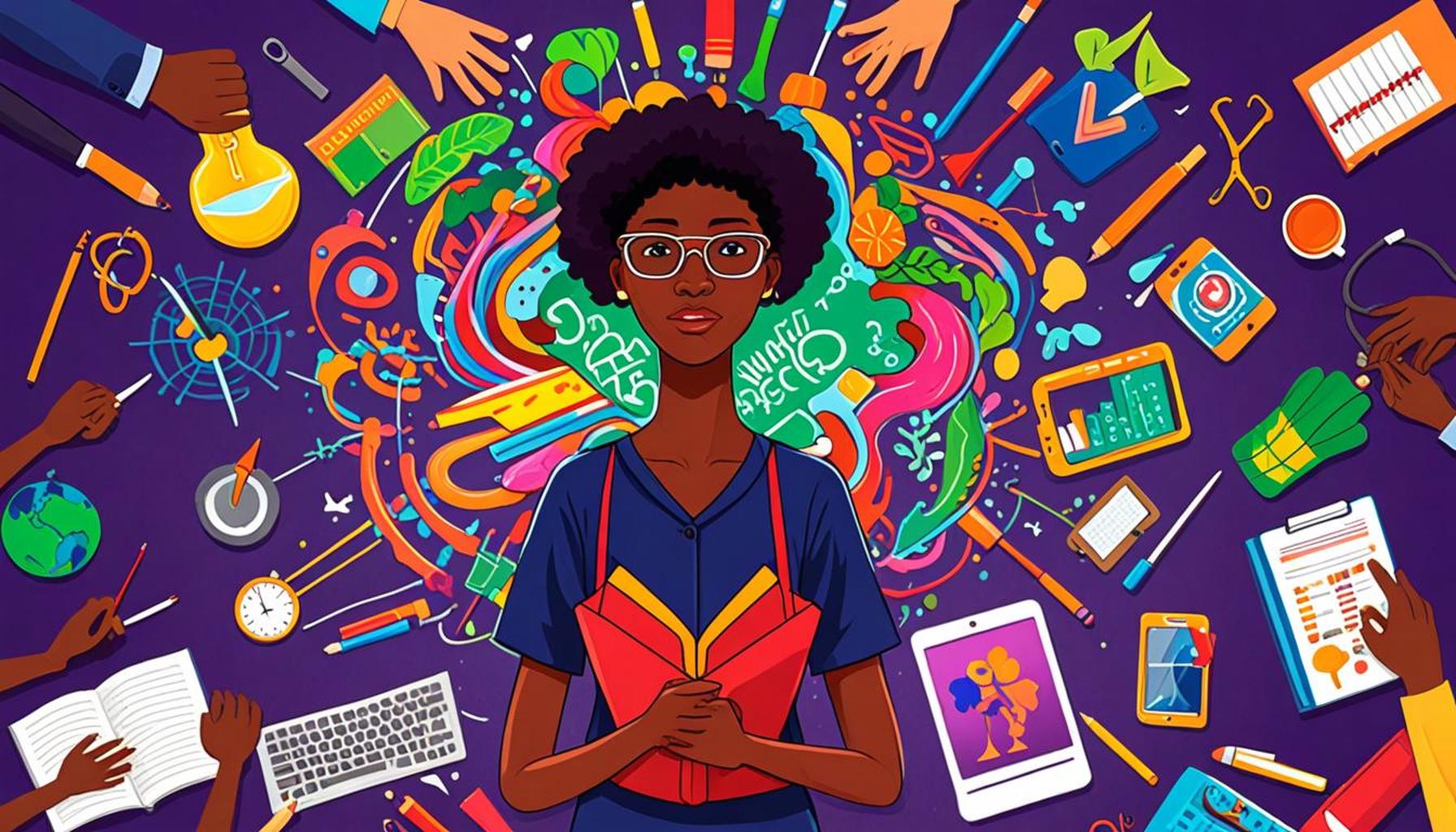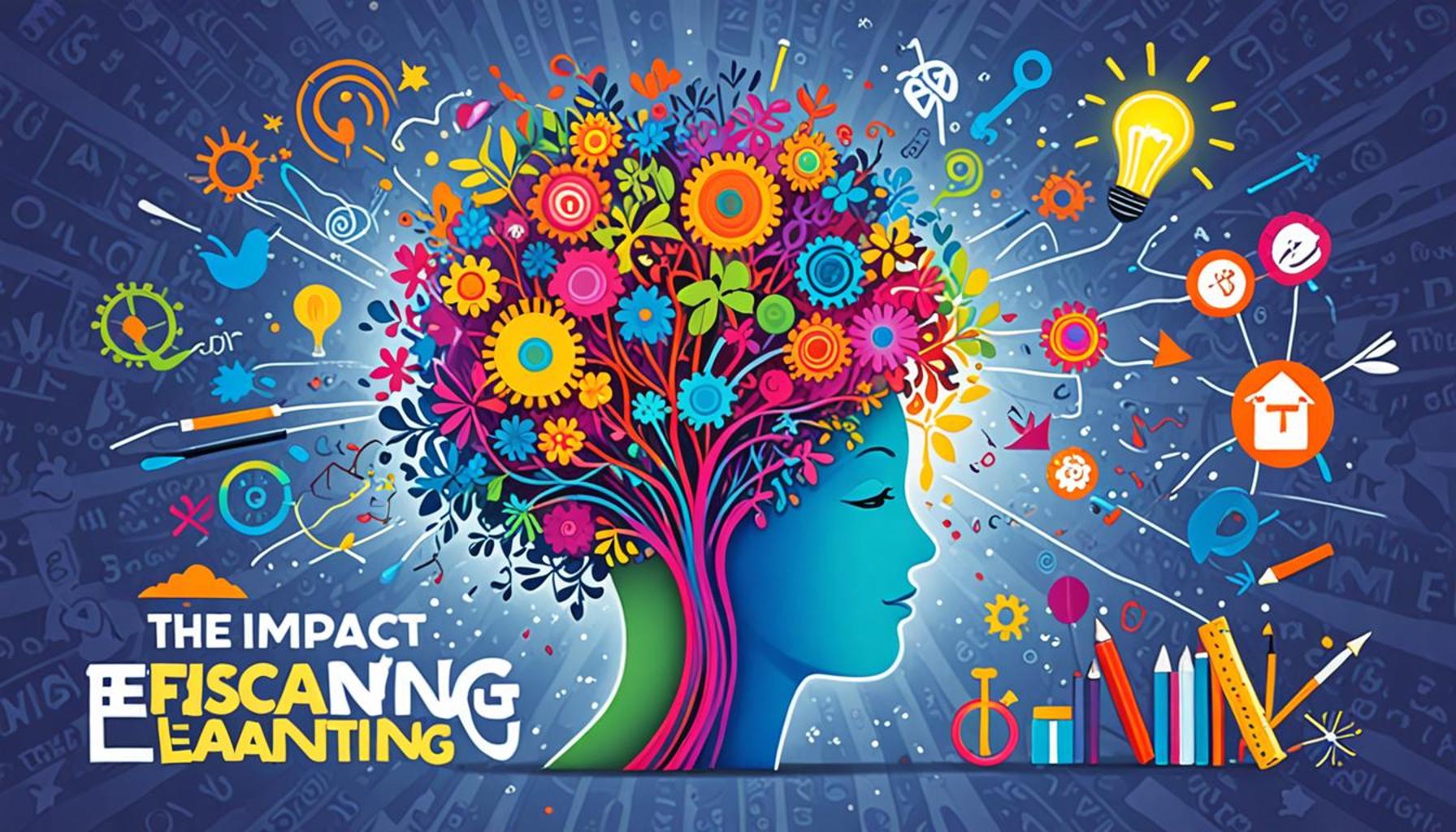The Influence of Emotional Intelligence on Learning Strategies and the Development of a Growth Mindset

The Significance of Emotional Intelligence in Modern Education
In an era where education is constantly evolving, the concept of emotional intelligence (EI) emerges as a powerful tool for enhancing learning experiences. This multifaceted skill set encompasses the ability to recognize, understand, and manage both one’s emotions and the emotions of others. As stakeholders in the educational system, including students, teachers, and parents, grasp the importance of EI, it becomes evident that fostering these skills can significantly impact academic engagement and success.
Research supports the assertion that emotional intelligence enhances learning strategies in evident and compelling ways:
- Self-awareness: This vital component of EI allows individuals to identify their emotions, which is instrumental in better self-regulation during stressful academic pursuits. For instance, a student who can articulate their feelings of anxiety before an exam may utilize relaxation techniques to manage their stress, leading to improved performance.
- Empathy: The ability to perceive and share the feelings of others is critical in creating a supportive learning environment. Collaborative projects and group discussions in classrooms encourage students to appreciate diverse perspectives, fostering a sense of community and belonging.
- Resilience: Equipping students with a growth mindset empowers them to view challenges as opportunities for growth. Research has shown that students who exhibit resilience are more capable of overcoming obstacles, thus turning failures into stepping stones for success.
In Nigeria, there is a notable shift among educators towards incorporating emotional intelligence into educational frameworks. This integration is not merely academic; it has practical implications for the holistic development of learners. The advantages of emphasizing EI in schools can include:
- Improved academic performance, as students equipped with EI typically achieve higher grades.
- Fostering healthy peer relationships that create a harmonious classroom atmosphere.
- Encouraging lifelong learning habits, which prepare students for the challenges of a continually changing world.
As students build a solid emotional foundation, they are more likely to embrace a growth mindset. Education initiatives in various Nigerian schools have already begun to build on this premise. Programs designed to cultivate these skills have recorded impressive outcomes, such as:
- A more positive and enthusiastic approach to academic challenges, leading to enhanced participation in class.
- Improved problem-solving abilities, as students who are in tune with their emotions can approach issues with greater creativity and calmness.
- Greater overall academic success and preparedness for future endeavors, as emotionally intelligent students are more adaptable and resilient in the face of adversity.
Exploring the intricate relationship between emotional intelligence and education reveals transformative potentials that promises to reshape the educational landscape. By prioritizing EI, educators and policymakers can create nurturing environments where learners are not only equipped for academic achievements but are also empowered to face life’s challenges with confidence and resilience. As this trend continues to unfold, it opens doors for further investigation into best practices and innovative strategies that will benefit students across Nigeria and beyond.

YOU MAY ALSO LIKE: Read read another article
Emotional Intelligence: A Catalyst for Effective Learning Strategies
The interplay between emotional intelligence (EI) and learning is profound and multifaceted. In Nigeria’s diverse classrooms, where students come from varying cultural backgrounds and experiences, the role of emotional intelligence becomes even more critical. It shapes not only how students engage with their studies but also how they interact with their peers and educators. One of the significant advantages of integrating EI into learning strategies is the ability to tailor educational approaches to meet individual student needs, thus enhancing their overall educational experience.
One essential component of emotional intelligence is self-regulation, which allows students to manage their emotional responses effectively. For instance, when students encounter challenging subjects, those with high emotional intelligence can assess their feelings of frustration or confusion, and subsequently utilize effective coping strategies. This might include seeking help from peers or teachers, employing mindfulness techniques, or adopting a problem-solving mindset that emphasizes persistence. Such strategies encourage students to embrace difficulty as a natural part of their learning journey.
Moreover, fostering a learning environment rich in emotional intelligence also nurtures social skills among learners. These skills are pivotal for successful group work and class discussions, allowing students to communicate their ideas and feelings openly. When educators prioritize EI, they create spaces where students feel comfortable sharing their thoughts, leading to deeper understanding and collaboration. Elements such as group projects and peer reviews are effective means through which students can cultivate these abilities, encouraging trust and respect within the classroom community.
A significant outcome of an emotionally intelligent learning environment is the promotion of a growth mindset. When students learn to process their emotions positively, they begin to view failures not as reflections of their abilities but as opportunities for growth. This paradigm shift is transformative. Research indicates that learners who adopt a growth mindset are more inclined to take on challenges, persist in the face of setbacks, and ultimately achieve higher levels of academic success. In Nigeria, where education is often viewed through a competitive lens, nurturing a growth mindset can inspire students to pursue excellence beyond mere examination grades.
In practical terms, students demonstrating a growth mindset are also better equipped to utilize various learning strategies. For instance, they tend to engage in self-reflection regularly, which helps them evaluate their study habits and identify areas for improvement. This might lead them to adopt innovative techniques such as peer teaching, collaborative note-taking, or using educational technology tools that cater to their unique learning styles. The adaptability fostered by emotional intelligence thus enables learners to experiment and refine their approaches, leading to better academic outcomes.
As schools across Nigeria increasingly recognize the benefits of emotional intelligence, several initiatives are emerging to reinforce its importance in educational curricula. Many institutions are now implementing training programs aimed at both educators and students to embed emotional intelligence practices into daily activities. This holistic approach not only sharpens academic performance but also enriches the personal and social aspects of the educational journey, preparing students to navigate the complexities of modern life.
By embracing the influence of emotional intelligence on learning strategies and growth mindset development, educators and stakeholders can create a more inclusive and effective educational system that meets the needs of all learners.
Emotional intelligence (EI) significantly shapes learning strategies and is pivotal in fostering a growth mindset. Individuals equipped with strong emotional intelligence exhibit the ability to recognize, understand, and manage their own emotions while also empathizing with others. This capacity impacts their approach to challenges, as they are more adept at navigating setbacks with resilience and adaptability. One of the remarkable aspects of emotional intelligence is its role in enhancing motivation and engagement in learning. For instance, students who are aware of their emotional triggers can regulate their reactions, thereby maintaining focus even in stressful situations. High emotional intelligence enables learners to set realistic goals, maintain perseverance, and embrace challenges as opportunities for growth. In addition, collaborating with peers presents a unique opportunity to enhance EI. Group projects can stimulate discussions that encourage emotional awareness, leading to improved communication and conflict resolution skills. Students learn to appreciate diverse perspectives, which fosters a more enriching learning environment. Furthermore, educators who integrate emotional intelligence into their teaching methods empower students to develop self-efficacy and a positive outlook on their learning journeys.Research indicates that integrating emotional intelligence training within educational curricula can yield significant benefits. For example, a study highlighted that students who participated in EI programs demonstrated increased academic performance and greater resilience in the face of adversity. This holistic approach not only contributes to cognitive growth but also nurtures essential soft skills vital for personal and professional success. The interplay between emotional intelligence and learning strategies underlines the necessity for educational systems to prioritize emotional literacy. Encouraging students to cultivate a growth mindset through emotional understanding promotes lifelong learning and adaptability, qualities that are essential in an ever-evolving world. By fostering environments that support emotional intelligence, educators and institutions can significantly influence how students develop strategies for learning, ultimately shaping their attitudes towards challenges and success. As we delve deeper into this topic, the implications of emotional intelligence appear far-reaching, advocating for a more empathetic and integrative educational experience.
SEE ALSO: Click here to read another article
The Role of Emotional Intelligence in Cultivating Resilience and Resourcefulness
As the global education landscape continues to evolve, the importance of emotional intelligence (EI) in shaping not just academic success but also overall well-being is gaining traction. In Nigeria, where educational pressures are significant due to high-stakes testing and competition for limited resources, EI emerges as a critical factor in fostering resilience and resourcefulness among students. When learners are equipped with the emotional tools to navigate challenges, they become empowered to tackle their academic pursuits with confidence and tenacity.
One of the fundamental aspects of emotional intelligence is the ability to recognize one’s emotions and the emotions of others. This self-awareness allows students to understand their triggers and stressors, paving the way for healthier responses during taxing periods like examinations. For instance, a student facing anxiety may learn to adopt breathing techniques or visualization methods, transforming that anxiety into focused energy. Such strategies highlight the connection between emotional management and effective learning, reinforcing the idea that students can control their response to stress rather than their circumstances.
Moreover, this self-awareness feeds into another essential skill fostered by emotional intelligence: adaptability. In an ever-changing educational environment, where teaching methods and assessment criteria continually shift, students who exhibit emotional intelligence can pivot more effectively. Consequently, they are more willing to explore different learning strategies—be it through blended learning platforms, interactive simulations, or group collaborations. For example, during the shift to online learning necessitated by the COVID-19 pandemic, students with high EI were often better at leveraging digital resources, adjusting their study habits, and collaborating virtually to maintain academic performance.
In Nigeria, the emphasis on community and familial support can further amplify the benefits of emotional intelligence in education. Schools that integrate EI lessons into their curricula often cultivate a strong sense of community. Participation in school activities, such as cultural festivals or peer mentorship programs, facilitates emotional connection among students, fostering collaboration and reducing feelings of isolation. Such environments promote collective emotional intelligence, where students collectively navigate emotional landscapes, leading to enhanced academic achievement and personal growth.
Furthermore, developing a growth mindset through emotional intelligence can have lasting implications for lifelong learning. Students who perceive challenges as opportunities are more likely to engage in self-directed learning and seek out experiences that enhance their skills. This proactive approach can be particularly beneficial in today’s job market, where adaptability and continuous learning are critical. In a nation like Nigeria, bursting with entrepreneurial potential, students who embody a growth mindset can venture into innovative pathways, thus contributing to the nation’s economic growth.
Initiatives by educational stakeholders, such as implementing EI-based curricula and teacher training programs, are beginning to bridge the gap between traditional learning and the emotional needs of students. Forward-thinking schools that prioritize emotional intelligence are likely to see significant improvements not just in academic performance but also in student well-being and interpersonal relationships. As educators and policymakers continue to explore this vital relationship, the ripple effects on students’ resilience and resourcefulness may well pave the way for a brighter educational future in Nigeria.
RECOMMENDED: Check out this similar article
Conclusion: The Transformative Power of Emotional Intelligence in Education
In an ever-evolving educational landscape, particularly within Nigeria’s unique context, the significance of emotional intelligence (EI) cannot be overstated. This critical competency not only enriches learning strategies but also plays a pivotal role in fostering a growth mindset among students. As we have explored, EI equips learners with essential emotional tools, enabling them to navigate academic pressures with resilience and adaptiveness, while also enhancing their interpersonal relationships.
The intertwining of emotional intelligence with educational methodologies highlights its imperative role in preparing students for future challenges. Whether through improved self-awareness, adaptability in learning environments, or the cultivation of a supportive community, the advantages of integrating EI into education are profound. Students who embrace a growth mindset, fueled by emotional intelligence, are poised to transform obstacles into opportunities, thereby becoming lifelong learners in an unpredictable job market.
As stakeholders in education—be they teachers, parents, or policymakers—continue to recognize the value of emotional intelligence, there is an urgent need to implement targeted curricula and professional training that weave EI into the fabric of educational systems. The potential for change is vast. Ultimately, by prioritizing the emotional well-being of students, Nigeria can foster not only higher academic achievement but also a generation that is emotionally equipped to meet the demands of an increasingly complex world. It is a call to action for all involved in the educational sector to embrace and invest in the multifaceted power of emotional intelligence, unlocking unprecedented pathways toward academic success and personal growth.



